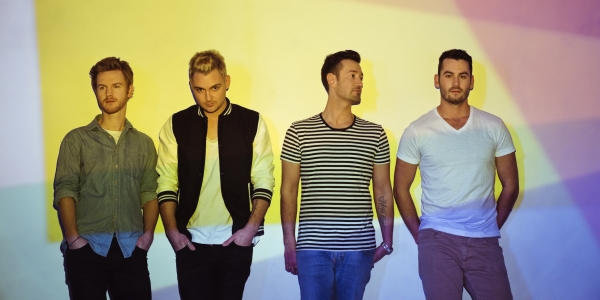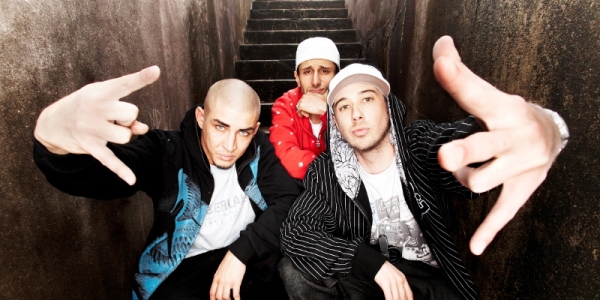In the vain of The Presets and The Rapture (both of which the band have supported) Strange Talk began three years ago as a studio act and, like many bands of the digital age, attracted management attention on MySpace.
“We’d never played a live show before, and we were getting asked a lot by various people in the industry for a showcase and that they’d like to hear us live and we thought we’d better put a band together,” Stephen Docker explains. Together with producer, DJ and bassist Gerard Sidhu, the pair enlisted drummer Travis Constable and guitarist Gillan Gregory and the four handsome Melburnians released their first self-titled EP in 2011. It had critics raving and again thanks to the internet, had fans all over the world falling head over heels for the moog-drenched, perfect-for-summer synth sound.
They began the festival circuit in 2011 in Australia taking in Parklife, Future Music, Soundscape, Falls and most recently and cited as one of their favorites, Stereosonic. Docker also fondly recalls a recent toga-bash at Brisbane University. “It was just a massive arena with everyone dressed in togas – we always love when there’s a bit of vibe from the crowd, because we draw from that, it gets us a little more excited.”
Strange Talk have also received major attention from the US, where they toured San Francisco, LA and New York for the CMJ Music Marathon in 2011 and 2012, and sold out a headline show. “The US was amazing,” Docker says, “there was no press involved, I think it was just social media and word of mouth, everyone was shouting back the lyrics and singing along.” He highlights the importance social media has played in their rise and is excited about the prospect of going further in the American market.
“They’re really embracing our sound, the US has always seemed like the hardest place to crack … so we might as well strike while the iron is hot and try to do something over their in the next couple of months.”
After the release of the first EP and a mammoth tour schedule, the group decided to take some time out on a farm in Castlemaine, 90 minutes east of Melbourne, to focus on their first major release.
In between episodes of South Park and Ultimate Fighting Championship, the guys were able to focus without the distractions of big city life. “It was just being able to remove the four walls we were used to working in … to really be able to work around the clock without having to go home and then come back and pick up where we left off,” Docker says.
The second half of the album fell into place when the band was able to move the ad-hoc studio to a beach house in Mount Martha. After the two trips it was simply a case of polishing the guts of the record. They were lucky enough to get noticed by Ladyhawke’s producer, Tony Hoffer, who was more than happy to work on the album. The final mixing was done via correspondence with Hoffer based in LA.
“It could have been frustrating,” Docker explains, “but luckily for us he was definitely on the same page.” Currently, the song writing duties fall squarely on Docker and Sidhu, but down the track they plan to lay down some tracks with more shared input. Docker says the band plan to head back to the US in the coming months and then head back to Australia in time for the summer festival season. “It’ll be a good year and we’ve got plenty of stuff happening for us so we’re pretty pumped.”
BY JOE CASSIDY







